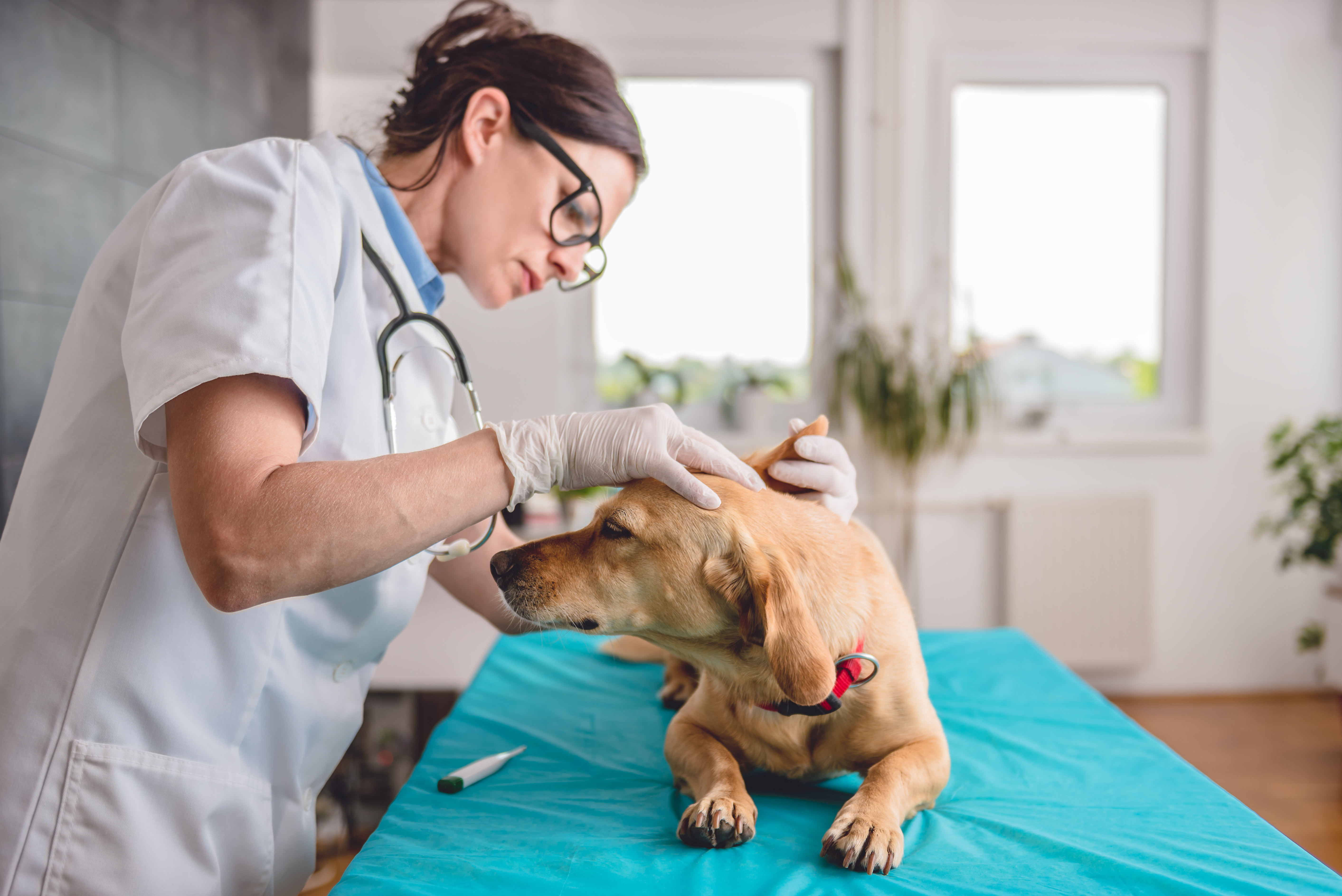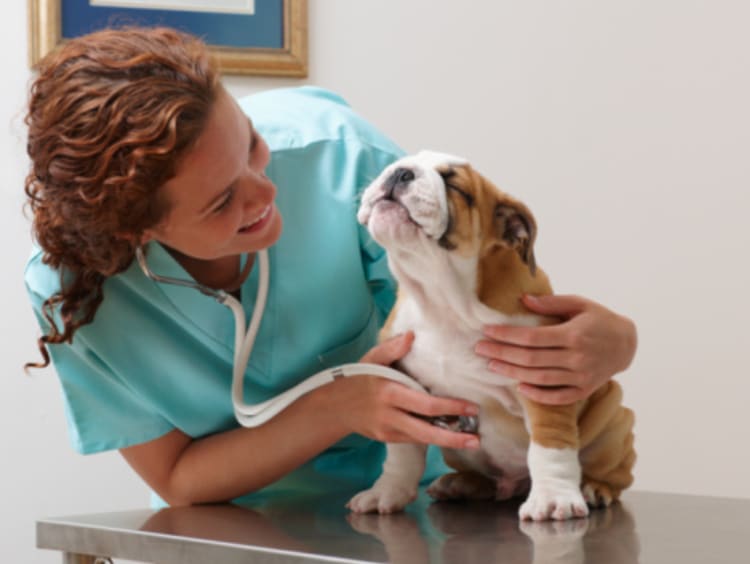How Pet Health Checkups Help Discover Very Early Indicators of Ailment and Maintain Your Pet Healthy
How Pet Health Checkups Help Discover Very Early Indicators of Ailment and Maintain Your Pet Healthy
Blog Article
Inoculation Guidelines From Your Trusted Veterinarian
Inoculation guidelines supplied by your relied on vet play a critical function in securing your animal's wellness and wellness. Core vaccinations are basic for all animals, while non-core vaccinations can be customized to environmental exposures and specific way of lives. Recognizing the nuances of vaccination schedules, which start as early as six to 8 weeks, is necessary for optimum defense. Additionally, resolving usual false impressions bordering injections can further improve pet dog owners' confidence in these safety nets. As we check out these critical aspects, it comes to be significantly clear why regular examinations with your vet are crucial for informed decision-making.

Significance of Inoculations
Vaccinations play a pivotal duty in guarding animals against a variety of avoidable diseases. By promoting the body immune system to identify and combat specific microorganisms, injections considerably minimize the occurrence of transmittable conditions that can impact a pet's wellness and durability. Not just do vaccinations safeguard individual pets, however they likewise add to herd resistance, thereby reducing the total frequency of diseases in the pet population.
Prompt vaccinations assist to alleviate the spread of conditions such as rabies, parvovirus, and distemper, which can have severe repercussions for both pets and humans. Additionally, vaccinations are often a demand for boarding facilities, brushing solutions, and pet dog parks, making them important for those who desire to socialize their pets.

Core Vaccinations for Pet Dogs
While the details vaccination demands of animals can vary based upon individual factors, core vaccines are universally recommended to shield against one of the most severe and usual diseases (Vet Enterprise). Core injections are those regarded vital for all family pets, despite their way of living or geographic place, as they protect versus potentially deadly and very contagious illnesses
For pet dogs, the core vaccinations consist of those for canine distemper, parvovirus, adenovirus (liver disease), and rabies. Canine distemper is a viral disease that impacts the breathing, stomach, and nerves. Parvovirus is understood for triggering extreme gastrointestinal health problem, especially in young puppies. Adenovirus can cause liver illness, while rabies is a zoonotic disease that presents a threat to both pets and humans.
In cats, core injections include feline panleukopenia, feline calicivirus, feline herpesvirus (rhinotracheitis), and rabies. Feline panleukopenia is a highly transmittable viral condition that influences the immune system and intestinal tracts. Calicivirus and herpesvirus are significant contributors to upper respiratory system infections in cats, while rabies remains a crucial worry for public health and wellness.
Talk to your veterinarian to guarantee your pet dogs get their core vaccinations on timetable.
Non-Core Vaccines Explained
Non-core injections are customized to deal with specific threats related to an animal's way of life, environment, and direct exposure to specific illness. Unlike core injections, which are generally recommended for all pet dogs, non-core injections are thought about based on specific scenarios. These injections are particularly important for pet dogs that might encounter distinct pathogens because of their geographical area, travel routines, or tasks.
Examples of non-core vaccinations consist of those for Bordetella bronchiseptica, which is linked to kennel cough, and Lyme condition, brought on by ticks. Pets that often connect with various other pets, such as those in boarding facilities, dog parks, or brushing settings, may profit from Bordetella vaccination. If you live in a location where Lyme disease is common, immunizing against this illness can be a prudent selection for outdoor-loving dogs.
Various other non-core vaccines may consist of those for leptospirosis, canine flu, and feline leukemia, depending on the details risk elements existing. It is necessary to have an extensive conversation with your veterinarian regarding your pet dog's lifestyle and the prospective requirement for these vaccinations, guaranteeing a customized vaccination method that ideal protects your fuzzy friend.
Vaccination Arrange Overview

As animals grow, it is necessary to stick to the recommended booster vaccinations. Pet Health Checkup. For grown-up pets, core vaccinations are usually offered every one to 3 years, relying on the particular injection and regional policies. Non-core injections may be recommended based on lifestyle elements and local illness occurrence, demanding a tailored method
Regular vet examinations are essential for updating vaccination timetables. Your vet can provide assistance on the most proper immunizations for your family pet, factoring in age, health status, and environmental dangers. By remaining proactive and informed, family pet proprietors can ensure their hairy friends obtain prompt and reliable vaccinations, thereby securing their wellness and well-being throughout their lives.
Usual Misconceptions About Vaccinations
Misunderstandings concerning animal inoculations can lead to confusion and unwillingness amongst family pet proprietors pertaining to the immunization process. One common myth is that vaccinations are unneeded for indoor pets. While it holds true that indoor pet dogs face lower threats, they are Extra resources not entirely unsusceptible to diseases, as pathogens can be presented through various means, consisting of human clothing and various other animals.
Another false impression is that vaccinations can cause the conditions they aim to stop. In truth, most vaccinations contain inactivated or attenuated microorganisms, which can not create condition in healthy pets. Some family pet proprietors also think that their animals should not be vaccinated if they are already healthy and balanced; however, inoculations are a positive step that helps stop the beginning of ailment.
In addition, several pet proprietors are afraid that injections will certainly bring about long-term health and wellness difficulties. While negative effects can happen, they are normally light and momentary. The benefits of inoculation-- securing animals from potentially deadly diseases-- far surpass the risks. Understanding these common misconceptions is important for responsible pet possession and guaranteeing the health and safety and security of your hairy companions. Always consult your vet for exact info tailored go to these guys to your pet's specific requirements.
Conclusion
In summary, adherence to inoculation guidelines is crucial for guaranteeing the health and long life of animals. Resolving typical misconceptions surrounding inoculations even more enhances the significance of educated decision-making in pet treatment.
Not only do vaccinations protect private pets, but they additionally contribute to herd immunity, therefore decreasing the total prevalence of illness in the pet dog population.
Misunderstandings concerning animal inoculations can lead to complication and reluctance Extra resources among pet owners concerning the booster shot procedure. While it's true that interior pet dogs face lower dangers, they are not entirely immune to diseases, as microorganisms can be presented via different methods, consisting of human clothing and other family pets.
Some pet dog owners also believe that their animals must not be immunized if they are currently healthy; however, vaccinations are a positive procedure that aids prevent the onset of health problem.
The advantages of inoculation-- securing pet dogs from possibly deadly illness-- far exceed the dangers.
Report this page